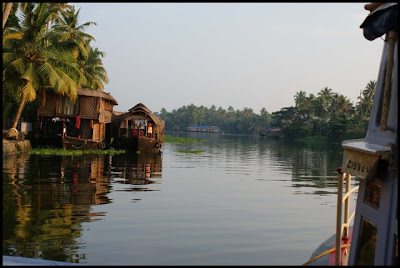Book review - The Immortals of Meluha
(Picture Source: Google)
Don’t you think that there’s something in the picture?, I bought the book for the very reason (It may sound weird, but that's me! sometimes i pick the books if i like the title ), it attracted me to pick it up from those landmark shelves, and when i read the plot in the back flap i was convinced that its not going to be unworthy. I am more into Indian authors in recent times.
This is the first one in a trilogy on Shiva (Am yet to find out if its actually about Lord Shiva).
1900 BC: The Land of Meluah (We call it the indus vally civilisation) is a near perfect empire created by Lord Rama. The empire ruled by the Suryavanshis face severe perils as their primary river Saraswati is dying to extinction. They are also devastated by surprised terrorist attacks from their enemies the chandravanshis allied with the Nagas. Nagas are deadliest deformed humans with extraordinary powers.
The Suryavanshi’s only hope is on a legend: The hero will arise to destroy the evil, and he’ll be a foreigner not born in the Meluah. Shiva the Tibetan immigrant is the legendary hero, so does he destroy evil? - This is the gist.
The plot is interesting, so is the whole novel; but there’s something lacking in the author’s narration considering the fact that his story weaves around Indian mythology. I felt it could have been more original if one of our native languages would have been used rather than english. He has used more contemporary terms in a rather mythological story. E.g., he mentions words like terrorism, immigrants in a story about lord Shiva … sounds bizzare when you read it :-) may be he wants a political attraction to his book.
Whatever.., I understood something more about our indian mythology. Keeping mythology and culture apart the author definitely deserves an appreciation for the crisp screen play or the sequences in the story line, you never get bored. Everything’s limited there’s not too much of mythology or history or philosophy. There’s never a delineation between the story and facts about mythology; its all in one knot and very natural, so that you don’t actualy need to connect the mythological fact (un-intended Oxymoron) to the story line.
Verdict: Interesting! Waiting for the sequel.



Comments
Post a Comment